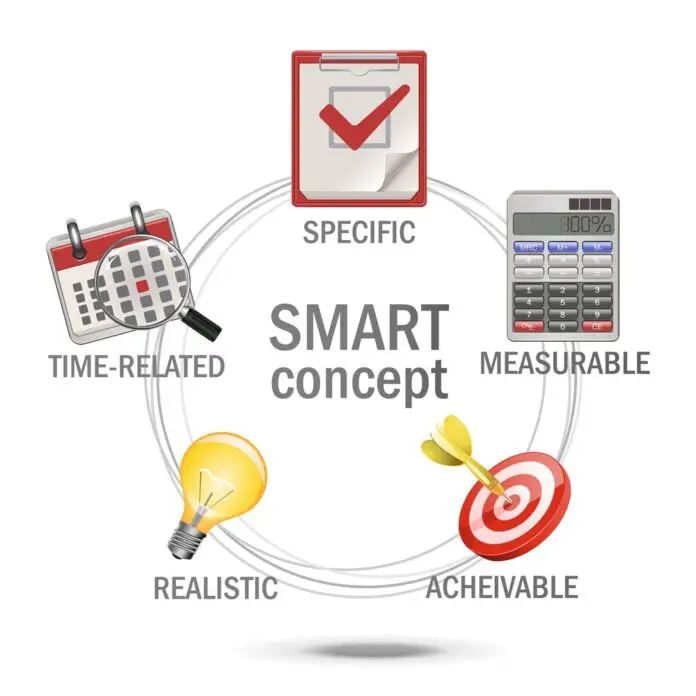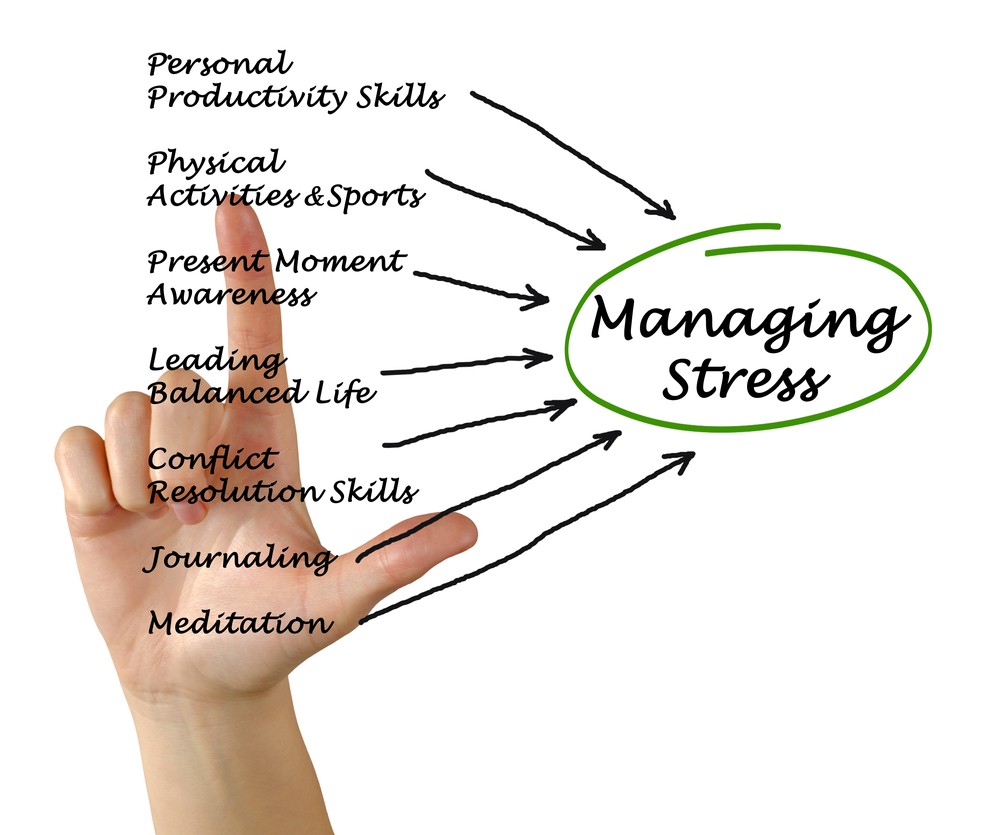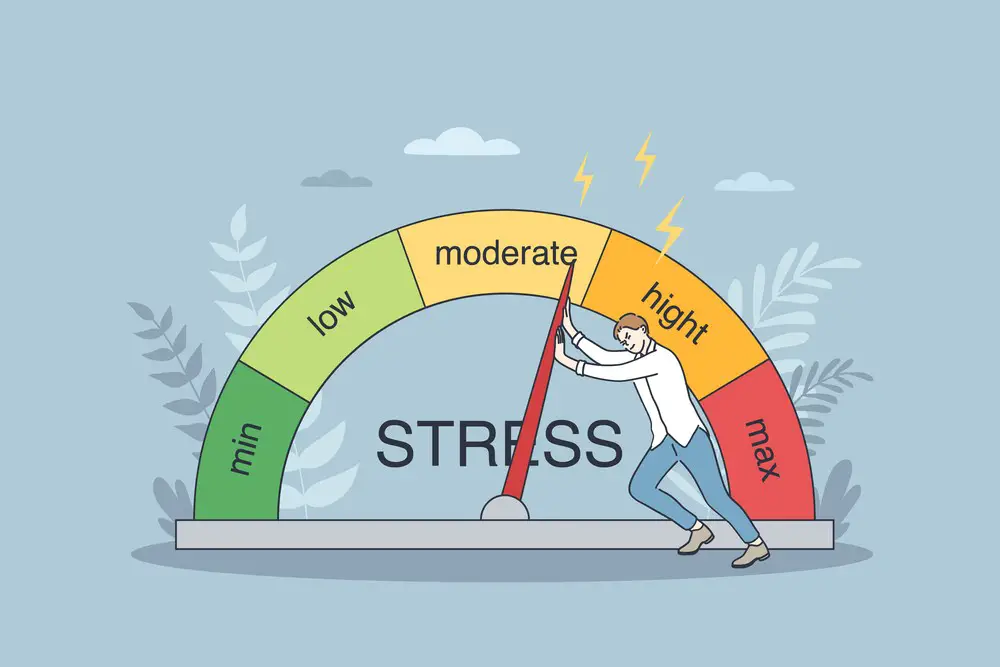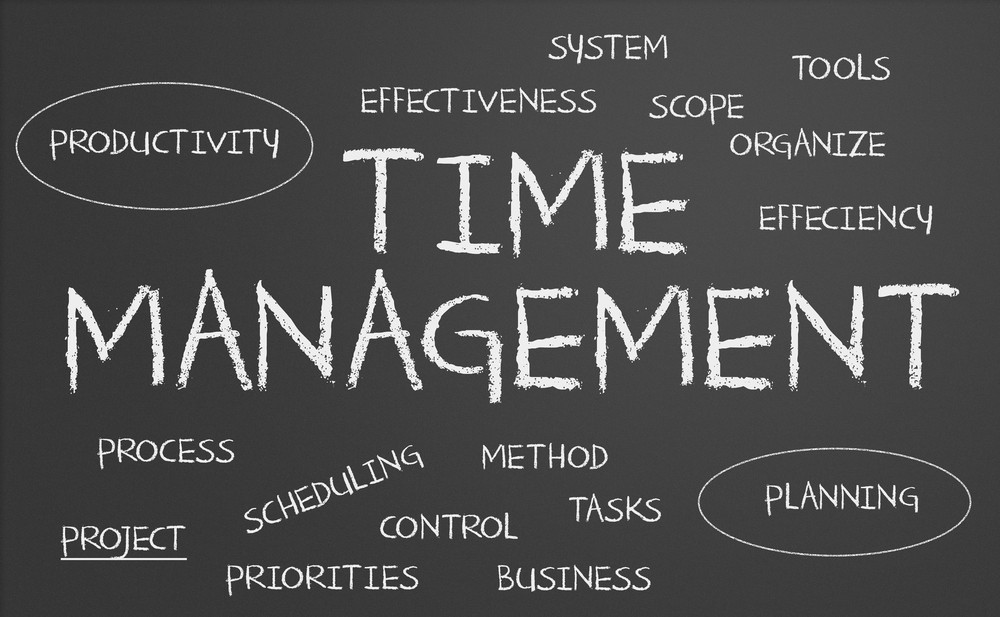As a BetterHelp affiliate, we receive compensation from BetterHelp if you purchase products or services through the links provided
Projects can often be overwhelming, causing significant stress that affects your focus, productivity, and overall well-being. This article aims to provide practical strategies to reduce the stress of completing a project while maintaining a healthy balance between your professional and personal life.
When approaching a project, one essential aspect to consider is understanding the root causes of stress related to projects. This understanding can help you make effective planning, time management, and team management choices. A proactive mindset throughout the project will enable you to deal with unexpected changes and issues, equipping you with the essential stress-reduction tools.
Key Takeaways
- Identify the sources of project stress and create tailored strategies
- Apply efficient time and team management techniques for smoother project execution
- Develop a healthy personal response to stress and enhance your problem-solving skills

Understanding Project Stress
Recognizing Signs of Stress
Project stress can manifest in various ways, and it’s crucial to recognize the signs early to manage this stress effectively. Some common indicators include feelings of constant anxiety, trouble focusing, irritability, or disrupted sleep patterns. Additionally, you might be overwhelmed by the project’s demands, leading to poor time management and procrastination.
Physical symptoms, such as headaches, muscle tension, or stomach issues, could also be signs that you are experiencing project-related stress. Listening to your body and mind can help you detect these stressors and take appropriate steps before they escalate.
Impacts of Project Stress
Project stress not only affects your mental health but can also impact your overall well-being, relationships, and work performance. One possible consequence is burnout, a state of emotional, physical, and mental exhaustion resulting from prolonged exposure to stress.
Work-related stress might lead to increased errors, decreased productivity, and low levels of job satisfaction, which can strain your interactions with colleagues and hinder your ability to contribute effectively to a team. Furthermore, mental health issues, such as anxiety and depression, can arise due to continuous stress.
Understanding and addressing project stress can decrease its negative impacts on your life and work, leading to a healthier and more efficient approach to completing projects.
 Planning to Alleviate Stress
Planning to Alleviate Stress
Creating a Realistic Plan
To reduce the stress of completing a project, start by creating a realistic plan. Consider the time and resources at your disposal and the key tasks needed. Break down the project into smaller, manageable tasks, and assign deadlines for each. This will help you get a clear picture of the entire project’s timeline and reduce the burden on you.
- Create a timeline: Estimate the time needed for each task and develop an overall project timeline.
- Prioritize tasks: Decide the order in which tasks must be tackled based on their importance and dependencies.
- Allocate resources: Identify team members, materials, or tools needed for each task and ensure they are available when required.
Setting Clear Goals
 Once you have a plan, setting clear goals for the project is important. Goals should be specific, measurable, achievable, relevant, and time-bound (SMART). By defining SMART goals, you can set a clear path toward project completion and keep stress levels in check.
Once you have a plan, setting clear goals for the project is important. Goals should be specific, measurable, achievable, relevant, and time-bound (SMART). By defining SMART goals, you can set a clear path toward project completion and keep stress levels in check.
- Specific: Clearly define your goal and avoid vague or broad statements.
- Measurable: Set tangible criteria or metrics to gauge your progress and determine if the goal has been met.
- Achievable: Make sure the goal is realistic, considering limitations like time and resources.
- Relevant: Ensure the goal aligns with the project’s objectives and contributes to its success.
- Time-bound: Assign deadlines to each goal so you stay on track and avoid procrastination.
By following these guidelines for planning and goal-setting, you can better manage your project, minimize stress, and ultimately achieve better results. Remember to review your plan regularly and adjust it as needed so you stay on course and successfully meet your deadlines.
Efficient Time Management
 Prioritizing Tasks
Prioritizing Tasks
To reduce the stress of completing a project, it’s essential to prioritize your tasks. Start by making a list of all tasks that need to be completed and their deadlines. Then, determine which tasks are most important and prioritize them. You can use the Eisenhower Matrix as a simple yet effective tool to help you prioritize. This matrix categorizes tasks into four quadrants:
- Important and urgent: High-priority tasks that require immediate attention.
- Important but not urgent: Important tasks that can be scheduled later.
- Urgent but not important: Tasks that can be delegated to someone else.
- Not urgent and not important: Tasks that can be eliminated or postponed.
By focusing on the most important tasks first, you’ll make better use of your time and improve your efficiency.
Avoiding Procrastination
Procrastination is a common obstacle to efficient time management. To overcome this hurdle, break tasks into smaller sub-tasks and set deadlines for each one. This makes your workload more manageable and prevents you from feeling overwhelmed.
Implement the “Two-Minute Rule” – if a task takes less than two minutes to complete, do it immediately. This method prevents small tasks from piling up and becoming time-consuming obstacles. Additionally, create a distraction-free environment by blocking time-wasting websites or using applications encouraging focused work, such as the Pomodoro Technique.
By prioritizing tasks and avoiding procrastination, you’ll improve your time management and make it easier to complete your projects with less stress.
Effective Team Management
 Fostering a Positive Team Environment
Fostering a Positive Team Environment
Creating a positive team environment is essential to reduce the stress of completing a project. Encourage open communication among team members and promote a collaborative atmosphere. Be a supportive team leader, providing guidance and recognizing the strengths and accomplishments of each person. Regularly check in with your team to ensure they feel comfortable discussing ideas, concerns, and suggestions.
- Encourage collaboration: Foster a sense of teamwork by inspiring collaboration where everyone’s ideas are valued.
- Celebrate successes: Acknowledge individual and team accomplishments to boost morale and motivation.
- Provide support: Offer resources, training, or additional help that team members may need to be successful.
Dealing with Team Issues
Conflict and miscommunication are inevitable in any team environment. Addressing team issues promptly and effectively can significantly reduce stress and improve productivity.
- Identify the issue: Understand the problem by gathering information from all parties involved.
- Communicate openly: Facilitate effective communication among team members to openly discuss the issue and listen to the concerns and perspectives of all involved.
- Develop a resolution plan: Identify possible solutions and weigh their pros and cons before deciding on the best action.
- Implement and monitor: Put the agreed-upon solution into practice and monitor its effectiveness, making adjustments as necessary.
Fostering a positive environment and dealing with team issues promptly will help ensure your team remains focused, motivated, and productive. Keep practicing effective team management tools, and watch your projects become more enjoyable and less stressful endeavors.
Healthy Personal Response
Taking Regular Breaks
You need to take regular breaks during your project to help reduce stress. Even briefly, stepping away from your work can help you maintain a calm and focused mindset. During these breaks, consider engaging in relaxation techniques such as meditation, deep breathing, or listening to soothing music. These activities can aid in relieving tension and allowing your mind to reset before diving back into the project.
Incorporating physical exercise into your breaks can also be beneficial. Going for a short walk or stretching your legs can help boost your energy levels and improve your overall well-being. Taking care of your body supports your ability to stay focused and productive during the project.
Developing a Resilient Mindset
Cultivating a resilient mindset is crucial when handling the stress of completing a project. To develop this mindset, consider adopting a few of the following practices:
- Embrace a growth mindset: Recognize that challenges and setbacks offer personal growth and learning opportunities. This perspective helps you maintain a positive attitude during difficult moments.
- Practice self-compassion: Be kind to yourself when experiencing stress or encountering obstacles. Acknowledge that these setbacks are a normal part of the process, and treat yourself with understanding and patience.
- Set realistic expectations: While goals are important, setting unattainable expectations can lead to frustration and added stress. Break your project into smaller tasks and be realistic about the time and effort required.
By nurturing a resilient mindset and incorporating healthy personal practices such as taking breaks and incorporating relaxation techniques, you can effectively reduce the stress of completing a project and maintain overall well-being.
Tools for Stress Reduction

Utilizing Project Management Tools
Project management tools can greatly reduce the stress associated with completing a project. These tools can improve organization, streamline resources, and monitor progress. Some popular project management tools include Trello, Asana, and Monday.com. These tools allow you to:
- Create tasks and assign them to team members
- Set deadlines and track progress
- Prioritize tasks and set dependencies
- Share files, notes, and updates with your team.
By keeping everything organized and accessible in one place, you can focus on the tasks at hand and reduce the stress of trying to keep track of multiple project elements.
Embracing Support Networks
It’s essential to have a strong support network in place when managing a project. This includes both your professional connections and personal relationships. Here are some ways to strengthen your support network:
- Share your challenges with team members: Letting coworkers know what you’re going through can help you feel more connected and less alone. They may have valuable insights or advice to offer.
- Develop relationships with industry peers: Connecting with other professionals in your field can provide you with additional resources and advice. Attend industry events, join online forums, or join social media groups to expand your network.
- Maintain connections with friends and family: It’s important not to neglect your relationships during stressful times. Make time to talk with loved ones, even just a quick phone call or text to check in.
Embracing your support network will help reduce the stress of completing a project by giving you access to resources, advice, and emotional support. Remember, you don’t have to go through it alone – a whole network of people care about your success and well-being.
Dealing with Change and Issues
Managing Change
Change is an inevitable part of projects. As you progress, unexpected events or customer requirements may arise, requiring you to adapt your plans. It’s crucial to deal with change positively and effectively, as it can heavily impact the success of your project.
First, communicate openly with your team and customer about the upcoming change—transparency is key. Clearly explain the reasons behind the change and its expected impact on the project. This fosters understanding, minimizes resistance, and sets expectations.
Next, evaluate the change to determine its scope and potential implications. Identify which parts of your project will be directly affected, and explore how this will impact your timeline, budget, and resources.
Finally, develop an action plan to address the change. Update your project plans and schedules accordingly, and ensure all stakeholders are informed of the revised strategy. Be sure to closely monitor the implementation of the change and manage its effects on the project to stay on course.
 Resolving Project Issues
Resolving Project Issues
Resolving issues is another critical aspect of project management, as crises can easily derail your progress or damage your relationships with stakeholders. To effectively resolve issues, follow these steps:
- Identify the issue: Quickly and accurately pinpoint the root cause of the problem to determine the most appropriate course of action.
- Gather information: Collect all relevant details about the issue from sources like project documentation, team members, or customers to understand the situation better.
- Analyze the impact: Assess the potential consequences of the issue on the project, including scope, schedule, budget, and stakeholder satisfaction.
- Develop solutions: Brainstorm a list of possible resolutions, considering the resources and constraints at your disposal.
- Select the best solution: Choose the option that best addresses the root cause and minimizes negative impacts on the project.
- Implement the plan: Implement the chosen solution, monitor its progress, and communicate any necessary changes to stakeholders.
Throughout the process, prioritize transparent communication with your team and customer, as this helps build trust and demonstrate your commitment to resolving the issue.
 When Professional Therapy May Be Needed for Project-Related Stress
When Professional Therapy May Be Needed for Project-Related Stress
Project-related stress is common, especially when dealing with tight deadlines, demanding stakeholders, or complex tasks. While stress can be a motivating factor, it can also become overwhelming, affecting not only the project’s outcome but your overall well-being. Here’s when professional therapy might become necessary:
- Chronic Physical and Emotional Symptoms: If stress from the project leads to ongoing physical ailments like headaches or muscle tension or emotional symptoms such as anxiety or depression, professional intervention can be vital.
- Impact on Work-Life Balance: If the stress related to the project consistently invades personal life, leading to a lack of balance and personal dissatisfaction, it may be time to seek professional help to regain equilibrium.
- Ineffectiveness of Typical Stress-Relief Methods: When traditional stress-management techniques are no longer effective and the stress escalates, therapy can provide customized strategies tailored to the individual’s situation.
- Declining Performance and Satisfaction: When stress begins to impair your performance, creativity, or enjoyment in your work, seeking professional guidance can help you rediscover your passion and increase productivity.
- Development of Unhealthy Coping Mechanisms: If the stress of completing the project leads you to develop harmful habits such as excessive drinking or neglecting personal care, professional therapy may be needed to help find healthier coping strategies.
- Strained Interpersonal Relationships at Work: Excessive stress can lead to conflict with colleagues, supervisors, or team members. If this becomes a pattern, therapy might be a good option to learn constructive communication and conflict-resolution skills.
In conclusion, while some stress is normal and beneficial, recognizing when it has crossed a line into unhealthy territory is essential. If project-related stress begins to impact your health, performance, relationships, or overall satisfaction, don’t hesitate to seek professional therapy. Therapists can work with you to understand the unique stressors related to your project and develop individualized strategies to help you regain control and thrive.
Concluding Thoughts on Reducing Project Stress
Reducing stress while completing a project is crucial for maintaining your mental well-being and ensuring a successful outcome. One way to ease the tension is by breaking down the project into manageable tasks. This enables you to focus on individual steps and maintain a sense of progress.
Additionally, improving your writing skills can significantly reduce stress. Invest some time learning about effective communication techniques and efficiently organize your thoughts. This will help convey your message clearly and make the writing more enjoyable.
Remember to take breaks and avoid overworking yourself. Finding a balance between work and relaxation can keep you energized and motivated throughout the project. Don’t forget to practice self-care by engaging in activities that help you unwind and recharge.
Lastly, always seek help when needed. Collaborating with others and sharing the workload can significantly alleviate project-related stress. By incorporating these strategies, you will be better equipped to handle the challenges of completing a project and enjoy a more enjoyable, stress-free experience.
Frequently Asked Questions

What are effective time management strategies?
Effective time management strategies include setting priorities, creating schedules, and managing distractions. To prioritize tasks, use the Eisenhower Matrix by categorizing them into urgent, important, not urgent, and unimportant tasks. Create a schedule by allocating specific time slots for important tasks and time-boxing your activities. Set boundaries and use tools like time trackers and focus apps to minimize distractions.
How can breaking tasks into smaller chunks help?
Breaking tasks into smaller chunks makes them more manageable and less overwhelming. Staying motivated is easier when you have clear, achievable steps to complete. This approach, also known as “chunking,” can help you maintain momentum and stay on track since you can easily measure progress and adjust as needed.
What are some relaxation techniques to use during breaks?
Relaxation techniques during breaks can include deep breathing exercises, progressive muscle relaxation, visualization, or mindfulness meditation. These techniques can help you refocus, re-energize, and reduce stress levels when returning to your project.
How can setting realistic goals decrease stress?
Setting realistic goals helps you avoid the stress and disappointment of unachievable expectations. By setting attainable targets, you maintain a positive mindset, reducing anxiety and promoting productivity. It also makes it easier to track progress, celebrate achievements, and adjust your approach if necessary.
Does maintaining a healthy lifestyle help in managing stress?
Yes, maintaining a healthy lifestyle plays a crucial role in stress management. Engaging in regular exercise, getting sufficient sleep, and eating a balanced diet can help improve your mental and physical well-being. These habits can contribute to increased energy levels, better focus, and improved mood, making it easier to manage stress and complete projects.
How can delegating tasks reduce workload pressure?
Delegating tasks to others can significantly reduce workload pressure by sharing the responsibility and preventing burnout. In a team setting, delegation allows you to focus on tasks that align with your strengths while others can contribute their skills and expertise. Additionally, delegating tasks fosters collaboration increases efficiency, and strengthens project outcomes.
About the Author: Jacob Maslow – Turning Life’s Challenges into Growth Opportunities
I’m Jacob Maslow, and I understand the stress of completing a project all too well. As someone who relies on Lexapro to manage my mental health, with years of therapy under my belt, I’ve garnered insights into the nexus between stress, work, relationships, and personal well-being.
Navigating the stormy seas of a severe personal crisis, where my ex’s intense narcissism led to a painful alienation from our children and years of agonizing court battles, I’ve had to develop robust strategies to manage stress. Once the shared core of my life, my children are now ensnared in a web of broken court orders and unending conflicts. This ongoing struggle has only strengthened my resolve to understand stress profoundly.
Every day, I seek solace in long walks, a therapeutic ritual that lets me clear my mind and refresh my perspective. These introspective journeys are often where my best ideas are born.
With a writing career focused on mental health and narcissism, I’m committed to using my personal trials and professional knowledge to help others grappling with similar challenges. My goal is to inspire hope, resilience, and empowerment, affirming that anyone can overcome their mental health issues.
I’ve also channeled my experiences into a legal platform, extending support to those ensnared in conflicts where a spouse refuses to comply with court orders and children are used as pawns rather than embraced in co-parenting. Through empathy, understanding, and actionable strategies, I believe we can turn life’s challenges into stepping stones toward growth.
- Breaking the Silence: Why Men’s Mental Health Matters More Than Ever - April 15, 2025
- How to Transform a Home’s Patio Space into a Relaxing Space - March 23, 2025
- 5 Strategies to Use a Cell Phone to Help Manage Your Stress - March 23, 2025
This site contains affiliate links to products. We will receive a commission for purchases made through these links.


 Planning to Alleviate Stress
Planning to Alleviate Stress Prioritizing Tasks
Prioritizing Tasks Fostering a Positive Team Environment
Fostering a Positive Team Environment Resolving Project Issues
Resolving Project Issues When Professional Therapy May Be Needed for Project-Related Stress
When Professional Therapy May Be Needed for Project-Related Stress
